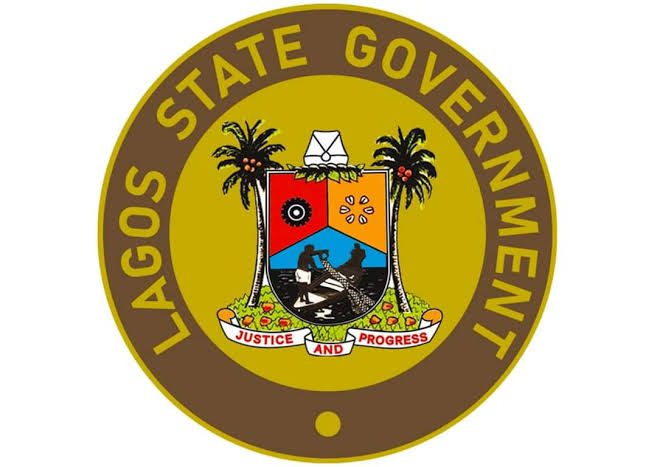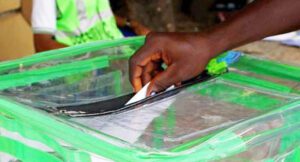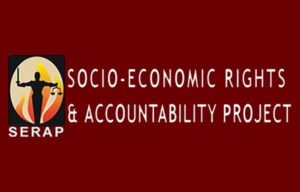


‘All vaccines are safe’- UNICEF, Lagos assures Community protection through vaccination
By Omolola Dede Adeyanju
As Lagos State Government in conjunction with the United Nations Children’s Fund (UNICEF) sets to kick-off vaccinations on Saturday, 19th October, they have assured all Lagosians of the safety of all vaccines to be administered, stressing that all vaccines are investments to health and well-being.
This was conveyed during the one-day media orientation on Non-polio Supplemental Immunization Activities (NPSIA) for Lagos State, held on Monday, to sensitize the masses on vaccine safety as the vaccination programme kick starts in all 57 Local Government Areas in Lagos State.
According to the Permanent Secretary, Ministry of Information & Strategy, Lagos state primary healthcare board, Dr. Abimbola Bowale, “The state’s commitment to safeguarding the health of Nigeria is unwavering and immunization plays a crucial role in that”. He stressed that Immunization is the first line of defense in strengthening the health indices of a family, the healthcare system and the society as a whole.
To the newsmen, Dr Abimbola emphasized, ‘The role you play in disseminating accurate and impactful information is pivotal in our collective effort to ensure that every child receives life saving immunizations with no one left behind. The influence you wield in shaping public perception and behavior cannot be overstated.’
However, The PS examined Non-polio SIAs as a critical component of the strategy to protect children from vaccine-preventable diseases. “The vaccines to be given, ” he said, “ includes; Measles, Yellow Fever, and other routine immunizations including HPV.
“The goal is to achieve herd immunity and the only way to do so is to ensure that at least 95% of the eligible population receive the measles vaccine and 80% of the eligible population receive the yellow fever vaccine. These activities are not merely operational tasks; they are life-saving interventions that contribute to the health and well-being of our future generations.
Dr Abimbola therefore noted that by reaching out to communities with compelling and accurate narratives, the media can help to drive home the importance of immunizations and dispel any myths or misconceptions.
Imploring the media to harness their platforms to amplify the message, informing the public about the benefits of the supplemental immunizations and the safety protocols in place, he stated, “can significantly boost participation and trust in these health initiatives.
“Together, let us ensure that no child is left behind, that every mother is reassured, and that every community understands the indispensable value of these immunization efforts. Our shared goal as partners in this fight, is a healthier, stronger Lagos State and Nigeria as a whole free from the scourge of preventable diseases.” He urged.
Meanwhile, Social and behavior change specialist, UNICEF, Aderonke Akinola Akinwole, expressed the essence of the orientation viz-a-viz the function of the media in channeling the right message to popularizing vaccine trust and acceptance amongst the masses.
“Owing to a lot of rumors, and fear of vaccination, she stated, “We know the media is a voice that reaches the voiceless and a platform to reach many. Now, Lagos is launching the non-polio SIA. We want to assure everyone that the state government has put in place the right people to vaccinate all, moving from house to house.”
Aderonke explained that the exercise is an integrated campaign. Enumerating the categories of vaccines available; polio vaccines for 0 to 59 months, measles vaccine for ages 9 to 59 months, yellow fever vaccine for 9 months to 44 years, HPV vaccine for the girl child aged 9 to 14 in order to prevent cervical cancer. Tetanus Diphtheria for girls and women aged 15 to 49 years.
“It is important to note that all vaccines are free, effective and safe. UNICEF is supporting the government to reach strategic areas and remote parts of the Community with community engagement activities targeting the very far and the very near. We want everyone to understand that this engagement is not particularly for the health sector but a joint effort by every member of the community.”
Aderonke further submitted, “Currently, we are having a stakeholders meeting, targeting the religious, traditional and other Community structures and networks. We are also doing a lot of grassroots sensitization, Community dialogues and here we are with the media. We want to have every stakeholder that can influence the belief of people to spread the good news of vaccination.” She added.
Furthermore, the immunization programme coordinator for Lagos primary health care, Dr. Akinpelu Adetola elucidated that the state-wide immunization campaign was important as over the past two to three years, there have been several outbreaks of vaccine-preventable diseases, such as measles, yellow fever, diphtheria, and the recent cholera.
Stressing that the outbreaks shows an immunity gap in the community, he cited that the easiest way to close those gaps is to have a state-wide immunization activity while ramping up routine immunization processes in the states.
“For yellow fever, we’re supposed to vaccinate 85 percent of everyone in the state and that gives us roughly about 21 million-plus people. Yellow fever is injectable, we need to have qualified healthcare workers who can provide these vaccines.
“We have started engaging all the CDAs, all the CDCs. We’ve engaged all the religious bodies at the ward level, at local government level, and at the state level,” he stated.



